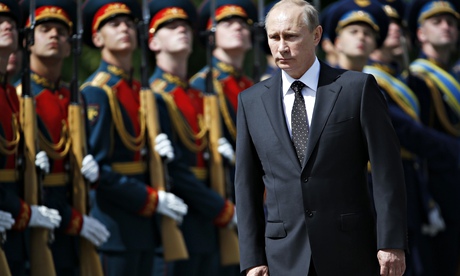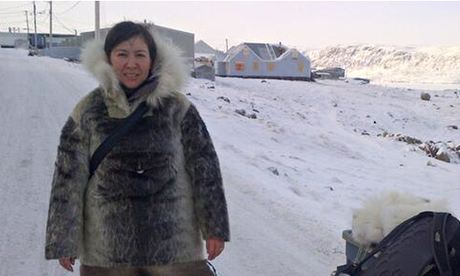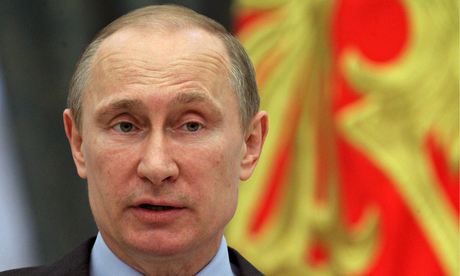See interesting study on the negative effects of cannabis. We need that decision overturned. Where's Tim Eyman when you need him?
http://gu.com/p/42bz5
Excerpts:
"...driving while “cannabis-impaired” can double your risk of accidents (consuming alcohol increases the likelihood of crashing between six and 15 times). He finds that one in 10 regular users develops dependence, increasing to one in six if they started in adolescence."
"Regular (almost daily) cannabis use in adolescence doubles the risk of cognitive impairment. One study showed an eight-point drop in IQ with heavy use between 13 (before the drug was used) and 38 years of age. A link with psychosis is most likely in people with a genetic susceptibility to it. In this group, the risk of developing psychosis could rise from 10 to 20%. "
On the day Russia annexed Crimea, an old friend in St Petersburg texted me to apologise. “I’m sorry that my country has lost its mind,” he wrote. This friendship is 20 years old. It was struck up when I was a student in the disorderly days of Boris Yeltsin’s presidency and nurtured when, as a foreign correspondent, I watched Vladimir Putin impose a kind of order – the kind that has turned my friend into a liberal dissident and that makes me unwilling to publish his name.
He is part of the Perestroika generation, born too late to be indoctrinated as a Soviet patriot but old enough to remember what the old Kremlin propaganda looked like on television and so to despair at seeing it come back.
Russia isn’t the only former communist country in eastern Europe to flunk the transition to democracy, but it is the biggest and the most dangerous. The fortunate ones are the former Warsaw pact members that joined Nato and the European Union, a process that demanded political, economic and social reforms which, while clearly no panacea, worked better for people in states that tried them than in states that didn’t.
The bounty is shared by many ethnic Russians marooned in the Baltic and denied full citizenship of their new host country. The rigours of Nato and EU accession forced nationalist governments to furnish these minorities with basic rights and devise routes to integration. Regional experts confidently predicted ethnic warfare on the Bosnian model. It never happened.
I flag up this case study because the plight of Russian-speakers in Ukraine is the chief grievance justifying Kremlin intervention, ostensibly protecting its ethno-linguistic diaspora from monstrous fascists in Kiev. I lived in Riga when Moscow would periodically ramp up exactly the same rhetoric against Latvia and Estonia. I also have no doubt that, were Latvia and Estonia not now protected by Nato, they too would be foundering states subject to Putin’s aggressive territorial demands.
The EU accession process was vital when it came to putting humane laws on the statute books and training up civil servants in the ways of democratic statehood. There was an obvious economic interest in joining the Brussels club. But for those countries that bordered Russia, acceptance by Nato was the big prize. It was the thick black ink that would make permanent the borders around their sovereignty that Moscow plainly believed were drawn in pencil and vulnerable to erasure.
There were many voices seeking to deny the Balts that security. The argument then was much like today’s calls for soothing of Russian tempers over Ukraine: the west, giddy with cold war triumphalism, is provoking the bear by setting up shop on the borders of his den, leaving him no choice but to lash out. There is a grain of truth and a dollop of delusion in that account. Moscow never needed the slightest provocation to undermine the sovereignty and viability of bordering states whose legitimacy it always denied. It did, however, know to back off when the west made clear it counted eastern Europe’s fledgling democracies as friends. Friends they would defend.
Western enthusiasm for February’s Maidan revolution and eagerness to deal with the new regime in Kiev is depicted by the Kremlin as a hostile act. But the precedents of 20 years suggest a country that reforms in partnership with western institutions will become steadily more stable and prosperous. And that would be good, not just for Europe and Ukraine but for Russia too. By contrast, a country that falls under Kremlin tutelage becomes more corrupt and dysfunctional, which is terrible for the people who live there and isn’t even good for Russia. This is the perversity of Putin’s position. A Ukraine that is allowed to develop without Putin’s tanks on its soil will still be required by geography, language and history to be a partner and conduit for Russian economic interests. The Kremlin’s current policy indicates preference for paranoid militarism over economic development inside Russia as well as Ukraine.
There isn’t much audience in Britain for this benign account of western motives. On the right there is the Ukip tendency, shared by many Tories, that is so jaundiced in hatred of Brussels that it prefers to see EU ambitions for partnership with Ukraine in Putinist terms – a land grab. On the left, too, there is sympathy with the notion that western support for Kiev is a divisive affront to the Slavic brotherhood of nations. That impulse comes in part from the habit of routinely opposing anything containing the imperial whiff of western arrogance (I fear it also contains a weird muscle memory of genuflexion to Kremlin-friendly arguments). As if Moscow’s self-serving narration of history to justify grabbing chunks of other countries’ land is something other than imperialism.
As for the rights of Russians and Russian-speakers in candidate countries – it was Nato as much, if not more than the EU which in the Baltic insisted on liberalising reform as a condition of membership. This was for the simple reason that neutralising inter-ethnic tensions in the Baltic matched the west’s hardheaded interests. Having a bunch of effectively stateless and miserable Russians inside a Nato country was transparently a bad idea, and the governments in Riga and Tallinn had to work hard to persuade Washington that they were sorting things out. US advisors would visit the region and dole out uncomfortable home truths about the need for nationalist politicians to fix their embittered attitude to minorities, to stop seeing themselves as victims and start behaving like responsible governments. The awkward fact for today’s Kremlin apologists is that Nato has been a friend to the Russian and Russophone populations in eastern Europe.
The problem has not disappeared and there are still grievances over citizenship, but Baltic Russians are not – as the Kremlin would like to depict them – a victimised minority suffering under an apartheid regime. Their rights and their prospects are immeasurably better than they would be as involuntary subjects of some Kremlin-concocted separatist banana republic. It is because of Nato that they are spared such a fate. Eastern Ukrainians are not so lucky.







